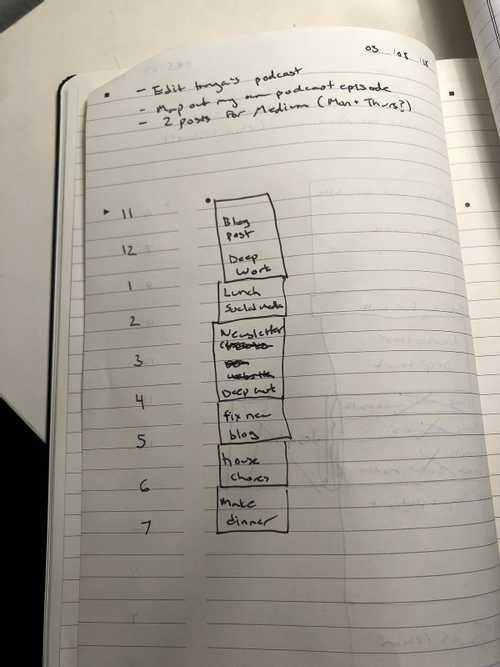10 In-Depth Strategies to Improve Your Focus and Produce High-Quality Work
Curated from: medium.com
Ideas, facts & insights covering these topics:
10 ideas
·6.92K reads
31
1
Explore the World's Best Ideas
Join today and uncover 100+ curated journeys from 50+ topics. Unlock access to our mobile app with extensive features.
Practice Slow Work
When we react to every little thing that comes up at work, we lose focus and attention.
Counter this by scheduling extra time to complete a task, engaging in single-tasking, and setting reasonable expectations for yourself and for others on how much you are able to produce in a given day.
219
1.01K reads
Develop a Stress Management System
Stress is unavoidable, but we can create systems to decrease its influence over our capacity to work. These systems vary from person to person but they often include meditation, aerobic exercise (i.e. running, cycling, walking), surrounding yourself in nature, and eating healthfully.
When you know an upcoming project will generate stress, anticipate scheduling periods into your work plan to participate in the stress management activities that work for you.
221
823 reads
Seek To Explain
Memorization doesn’t necessarily mean learning. The test for whether you understand a subject or not is the capacity you have to explain your subject or argument.
197
858 reads
Improve Your Creativity.
Implementing activities into your daily life such as reading fiction, writing in different tones and styles, and even participating in arts and crafts can foster creativity.
213
773 reads
Use It Or Lose It
You need to feed your brain proper stimuli in order to counter degeneration. An active cognitive lifestyle requires continually feeding your brain activities that are intensive, repetitive, and progressively challenging.
Some example activities are: doing a jigsaw puzzle, learning a new instrument, participating in sports activities that require hand-eye coordination responses, and various brain exercises.
218
696 reads
Intense Work In Frequent Bursts
Set up a system where you focus on a specific project intensely for 25 minutes at a time, followed by a 5 minute break. Repeat this process 3–4 times and then take an extended break for about 10–15 minutes.
However, while you are on a break do not suddenly shift to multi-tasking, do just one thing at a time. Preferably, give your eyes a break from the screen or do something that requires movement.
211
581 reads
Set Several Deadlines
To manage stress from whatever you’re working on, set specific deadlines for each step of your project. This will create a system for your project, which will deal with some of the common uncertainties that are associated with doing something hard or outside of your comfort zone.
175
508 reads
Meditate On Your Task
Writing your ideas and meditating on them is important so you don’t commit to a flawed idea for lack of thought. It’s also good to give yourself some time and do other things as our brains often come up with alternative solutions when we are working in unrelated tests.
187
499 reads
Make a Daily Or Weekly Work Plan
Schedule ahead of time your day and revise it accordingly as unexpected tasks pop-up.
It’s less about how much gets done and more about establishing a vision as to how your work day will unfold.
192
528 reads
Single-Task
Unless the task requires, keep only one or two windows open simultaneously. Don’t keep them minimized either, close them and reopen only if you are taking a break or the task at hand is finished.
By minimizing the sources of distraction you will have an easier time diving into cognitively demanding work.
178
643 reads
IDEAS CURATED BY
George 's ideas are part of this journey:
Learn more about problemsolving with this collection
How to apply new knowledge in everyday life
Why continuous learning is important
How to find and evaluate sources of knowledge
Related collections
Similar ideas
8 ideas
8 ideas
8 Ways To Improve Your Focus
fastcompany.com
Read & Learn
20x Faster
without
deepstash
with
deepstash
with
deepstash
Personalized microlearning
—
100+ Learning Journeys
—
Access to 200,000+ ideas
—
Access to the mobile app
—
Unlimited idea saving
—
—
Unlimited history
—
—
Unlimited listening to ideas
—
—
Downloading & offline access
—
—
Supercharge your mind with one idea per day
Enter your email and spend 1 minute every day to learn something new.
I agree to receive email updates
